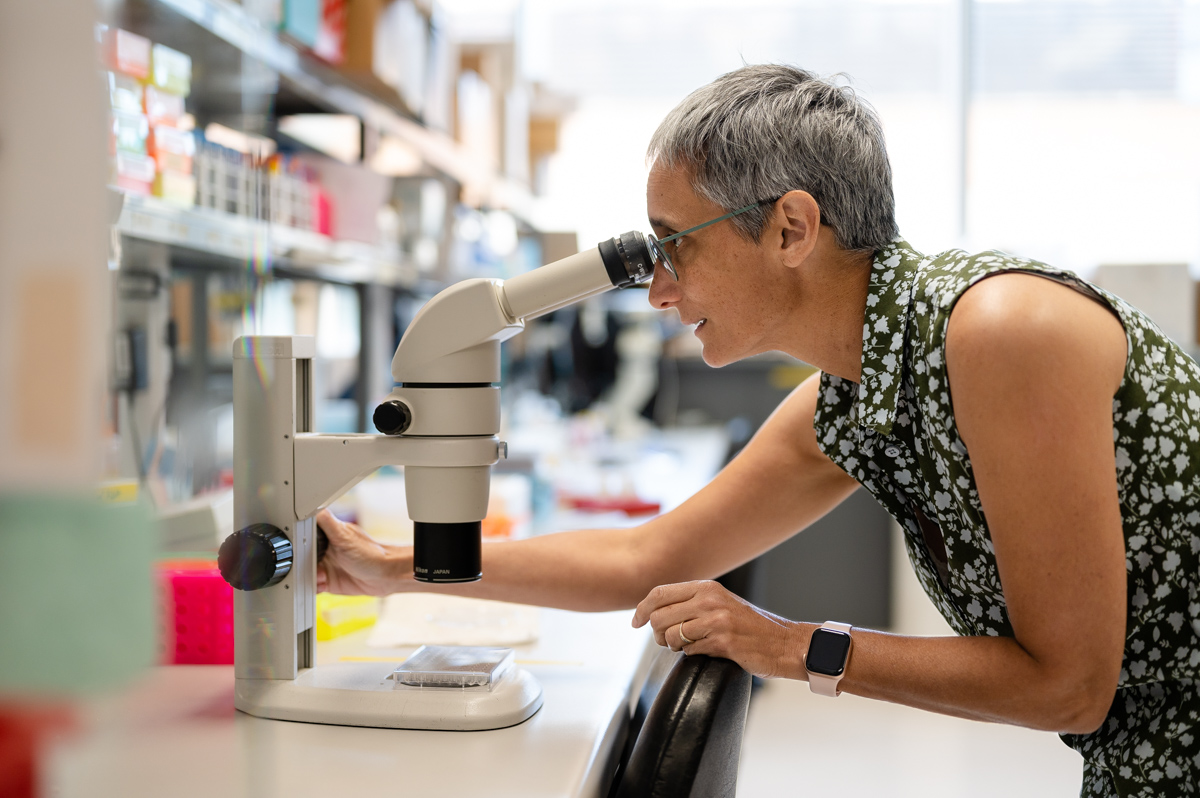Posted 25 June 2024

In 2023, Professor Tom Kay and Helen Thomas celebrated 30 years of working together. In the same year, they also published the results of their type 1 diabetes clinical trial which offers hope for the improved treatment of the condition.
“When I started working with Tom back in 1993,” says Helen, “my first project was looking at how insulin-producing cells in the pancreas were recognised by the body’s immune system in type 1 diabetes.”
“It was some of this work that formed the basis of our clinical trial.”
Type 1 diabetes is a chronic autoimmune disorder in which the body’s immune system destroys its own insulin-producing beta cells. As a result, people with the condition are not able to produce enough insulin, a hormone that regulates blood sugar levels, and they require daily insulin injections or the use of an insulin pump to survive.
In their world-first study, Tom, Helen and their team showed that a commonly prescribed rheumatoid arthritis drug called baricitinib was able to suppress the progression of type 1 diabetes in people who commenced treatment soon after diagnosis.
“When someone is first diagnosed with type 1 diabetes they often still have a substantial number of insulin-producing cells present. We wanted to see whether we could protect further destruction of these cells by the immune system,” says Tom.
“We showed that baricitinib is safe and effective at doing exactly that.”
This ground-breaking research shows promise as the first disease-modifying treatment of its kind for type 1 diabetes that can be delivered as a tablet.
Eleven years old when doctors told her she had type 1 diabetes, Anna was one of the 91 people who put their hands up to be enrolled in the trial. Her brother, Max, now 20, was also 11 at diagnosis.
Their mum, Sarah Jane, said, “When Anna was diagnosed, I was sad, because I see it as a lifelong condition.”
Sarah Jane describes the study as ‘intensive’ and while they don’t know yet if Anna was on the trial drug, baricitinib, or a placebo, she said one benefit of being on the trial was that it provided them with more medical support. “When Max was diagnosed, we felt like a fish out of water,” she said.
The trial follow up will continue for the rest of 2024. Anna’s 13 now, and on a very low dose of insulin.
“She doesn’t have the wide variances in blood glucose levels that her brother had,” Sarah Jane said.
Until insulin’s first use more than 100 years ago, type 1 diabetes was a fatal condition. However, despite its life-saving role, insulin itself is potentially dangerous if too much or too little is administered. In fact, management of the lifelong autoimmune disease is incredibly burdensome, both for the person affected and for their families, requiring as it does meticulous and constant glucose monitoring and insulin administration.
“It is tremendously exciting for us to be the first group anywhere in the world to test the efficacy of baricitinib, especially after the years of painstaking research that supported the trial’s conception,” says Tom.
“Up until now, people with type 1 diabetes have been reliant on insulin administered by injection or pump. Our trial showed that, if started early enough after diagnosis, and while the participants remained on the medication, their production of insulin could be maintained,” says Helen.
“We are very optimistic that this treatment will become clinically available. This would be a huge step-change in the management of type 1 diabetes, and would make a real difference to the 3,000 Australians diagnosed every year,” she says.
Sarah Jane said, “While we wish a treatment to prevent or slow down the progression of the condition was further down the line, we’re glad Anna had the opportunity to potentially change someone else’s future experience with type 1 diabetes.
She adds simply, “I’m grateful that SVI’s researchers aren’t giving up.”
The clinical trial was funded by JDRF, including through the JDRF Type 1 Diabetes Clinical Research Network. Partners included The Royal Melbourne Hospital, St Vincent’s Hospital Melbourne, The Royal Children’s Hospital and The Women’s and Children’s Hospital in Adelaide.